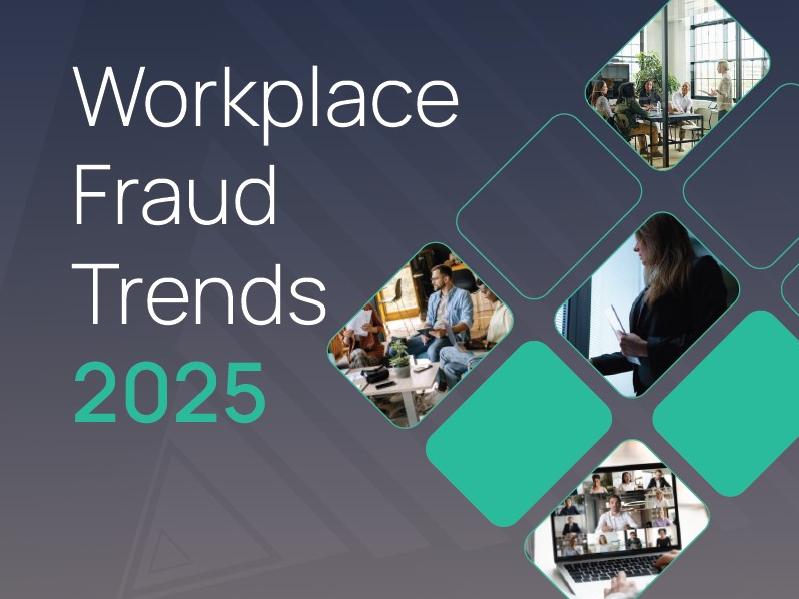
Brian Sims
Editor

Brian Sims
Editor
THE WORKPLACE Fraud Trends Report 2025 published by Cifas is based on a survey of 2,000 employees operating across different disciplines – from Human Resources to engineering, finance and IT – and seniority levels. The document reveals a growing tolerance for behaviours once considered taboo and unacceptable: from faking job references and selling access to company systems through to working for competitor organisations in secret.

Out of the five scenarios presented to respondents, using fraudulent reference houses to produce fake employment references and credentials in order to deceive recruiters and employers during the hiring process was deemed ‘justifiable’ by no fewer than 30% of respondents.
Expenses fraud – including claims for personal meals as a business expense – emerges as the most commonly committed type of fraud at 24%.
One in every five (ie 19%) professionals in the UK admit to secretly juggling two competing jobs – known as polygamous working – and nearly a quarter (24%) of them believe this to be justifiable,
One in every eight (ie 13%) employees questioned have admitted to sharing company login details for money, often believing that it’s harmless to do so. Almost one-fifth (19%) say they (or someone they know) have used those aforementioned fraudulent reference houses to cover employment gaps.
Gambling-related insider threats have also emerged, with 13% of respondents knowing someone who has used company funds to place bets.
In a worrying trend, 88% of business owners and 70% of C-Suite executives said that certain unlawful behaviours are justifiable. This underscores the need for leadership in fraud prevention training and measures to be implemented throughout companies.
Shift in workplace norms
Mike Haley, CEO of Cifas, explained: “These insights suggest a shift in workplace norms and raise urgent questions about organisational culture, risk management and accountability.”
Haley continued: “Our Workplace Fraud Trends research for 2025 doesn’t solely reflect individual choices. It reveals systemic blind spots to a whole range of rising threats impacting the workplace from polygamous working through to UK professionals using fraudulent reference houses.”
Further, Hayley noted: “Organisations must take urgent steps to build effective counter-fraud cultures in the workplace, strengthening fraud prevention measures and empowering employees to do the right thing.”
Keith Rosser, chair of the Better Hiring Institute and director of Reed Screening, commented: “Hiring fraud, which is driven by modern working styles and Artificial Intelligence (AI), is a quickly growing challenge for organisations. Since the Better Hiring Institute, Cifas and Reed Screening launched the UK’s first guide on Tackling Hiring Fraud in Parliament, the issue has steadily grown.”
Rosser went on to state: “Polygamous working and the use of reference houses are two of the largest issues impacting UK business, along with fake IT workers and AI-enabled fraud. It’s essential that companies protect themselves against this burgeoning issue.”
What can employers do?
Considering the report’s findings, organisations are encouraged to take proactive steps to strengthen their counter-fraud culture and reduce risk.
*assess your vulnerabilities: conduct regular fraud risk assessments to identify gaps and act on them swiftly
*vet beyond the CV: scrutinise qualifications and work history thoroughly, while considering the use of specialist vetting services to verify authenticity
*carry out ongoing background checks: don’t stop at onboarding and continue checks throughout the employee lifecycle
*empower through training: equip members of staff with the knowledge to spot red flags through regular fraud prevention training
*monitor with purpose: keep an eye on behavioural red flags not to micromanage, but rather to lead responsibly
*build a culture of accountability: create clear Codes of Conduct and confidential reporting channels, including anonymous whistleblowing options
*support your people: offer well-being resources to reduce the personal and financial pressures that can lead to dishonest behaviour
The survey was carried out by Opinion Matters between 14-21 July this year on behalf of Cifas among a nationally representative sample of 2,000 UK-based employees (aged 18-plus) working in companies with UK operations employing 1,000 or more individuals, while also guaranteeing that at least 500 respondents work from home for some or all of the time.
*Access copies of the Workplace Fraud Trends Report 2025 online
Dorset House
64 High Street
East Grinstead, England, United Kingdom
RH19 3DE
UNITED KINGDOM
01342 33 3714